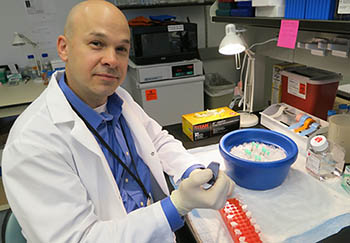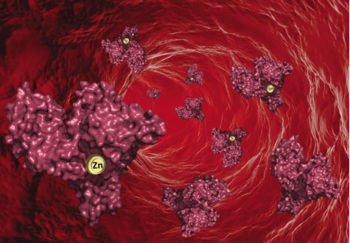
A New Opportunity for Brain Research
The Bite-Sized Synopsis: Nine research teams will get $550,000 to study the brain and brain diseases, including multiple sclerosis (MS), concussions and cancerous brain tumors. The money comes from the University of Virginia-Virginia Tech Carilion Neuroscience Research Collaboration, and the teams include researchers from both institutions.
What This Could Mean For You: These studies will generate a greater understanding of human behavior, how the brain works and major health challenges, which could ultimately lead to new preventive measures and treatments.
See the full list of brain research projects.
The 33 Genes That Influence Bone Density
The Bite-Sized Synopsis: Identifying the genes that influence a specific disease is like looking for a needle in a haystack. Researchers typically rely on genome-wide association studies (GWAS), which identify disease-specific locations in the vast human genome. But that alone doesn’t identify which genes are responsible cause the disease. In this study, researchers were able to go beyond GWAS and predict 33 genes that they believe are responsible for controlling bone mineral density.
What This Could Mean For You: This knowledge could lead to new and better treatments for osteoporosis, a condition where bones become weak and brittle. Additionally, the researchers believe the technique they used to identify the genes has great promise for future genetic studies and, therefore, will lead to greater understanding of other diseases.
Read more about this bone density research.
How The Immune System Defends the Brain
The Bite-Sized Synopsis: Type 2 innate lymphocytes are immune cells that protect the body from diseases. Researchers knew they existed in the gut, lungs and skin, but they were shocked to also discover these immune cells in the membranes around the brain. The cells have a major effect on recovery from spinal cord injury. But researchers think they also connect the brain to the gut microbiota and play a major role in battling neurological diseases such as Alzheimer’s, MS and migraines.
What This Could Mean For You: This research builds on last year’s game-changing discovery: vessels directly connecting the brain and the immune system. Although the researchers have a lot more work ahead of them, ultimately their findings could lead to drugs that target the cells and help people with neurological diseases.
Learn more about these immune cells and the gut-brain connection.

